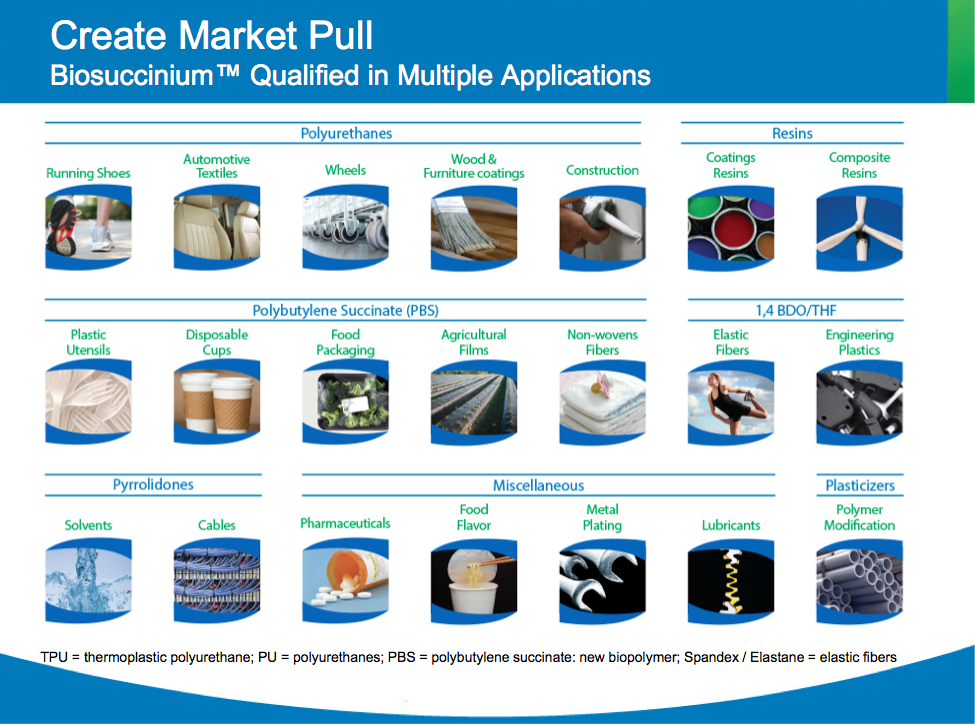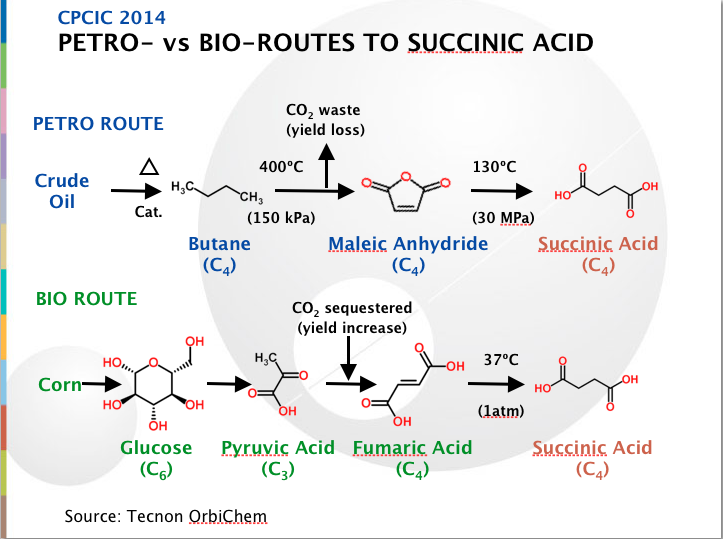Bio-succinic acid producer, Reverdia, a joint venture between DSM and Roquette, announced today at the European Forum for Industrial Biotechnology (EFIB), that it is now licensing its Biosuccinium technology for companies who want to integrate bio-succinic acid production into their business offering.
Since current and potential applications for succinic acid are so varied, these companies could be specialty chemicals firm, plastic producers, commodity chemicals producers, and even going downstream in for end-products producers such as in food/flavours, pharmaceuticals, etc. Biomass producers and suppliers could even jump into the the succinic acid business as they will be vertically integrated into succinic acid production. Here are just some of the applications that Biosuccinium is currently qualified for use:

Reverdia has already been running its 10,000 tonnes/year bio-succinic acid facility in Cassano, Italy, since its start-up in 2012. The company has been selling bio-succinic acid worldwide and usually shipped the white powder material in 1-tonne big bags.
According to the company, licensing the Biosuccinium as well as selling product directly will ensure the expansion of bio-succinic acid market. Some of the chemicals that bio-succinic acid can replace are maleic anhydride (especially in the production of 1,4 BDO and other derivatives from MA), adipic acid in the production of polyester polyols, phthalates in production of plasticizers, etc.
By the way, here is a slide from my recent bio-based chemicals overview presentation in China and in Chicago. This one compares the petro route and the bio route (Myriant’s bio-route in this case). You can see the operating conditions require for petro succinic acid production as well as the CO2 emissions and the feedstock butanes (which is getting expensive by the way).

This is why bio-succinic acid is expected to be more economical compared to the petro succinic acid route. However, the question here is if bio-succinic acid can be economical compared to the other chemicals that it is trying to replace unless of course the performance of bio-succinic acid in certain applications are better – then a slight premium is definitely acceptable especially in specialty chemicals applications.
Reverdia believes its Biosuccinium technology is cost-competitive and the company said it offers best-in-class carbon footprint performance based on an LCA which was published in the peer-reviewed journal Biofpr.
Some of the recent information I was able to get from Reverdia, as well as more analysis of the current succinic acid market (including what’s happening in China’s petro succinic acid production) will be published on Tecnon OrbiChem’s October Bio-Materials newsletter.
FOLLOW ME ON THESE SPACE
Bio-succinic acid looks promising on paper, but we’ll see just how useful it is in a practical sense soon enough. It seems like it’s going to be a close call either way.
Posted by Chemical Man | October 3, 2014, 3:56 pm